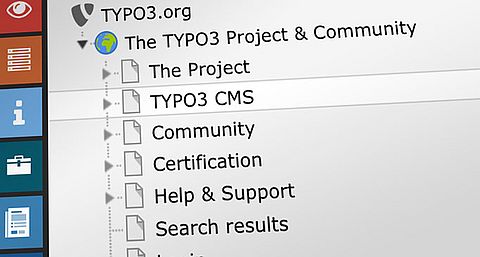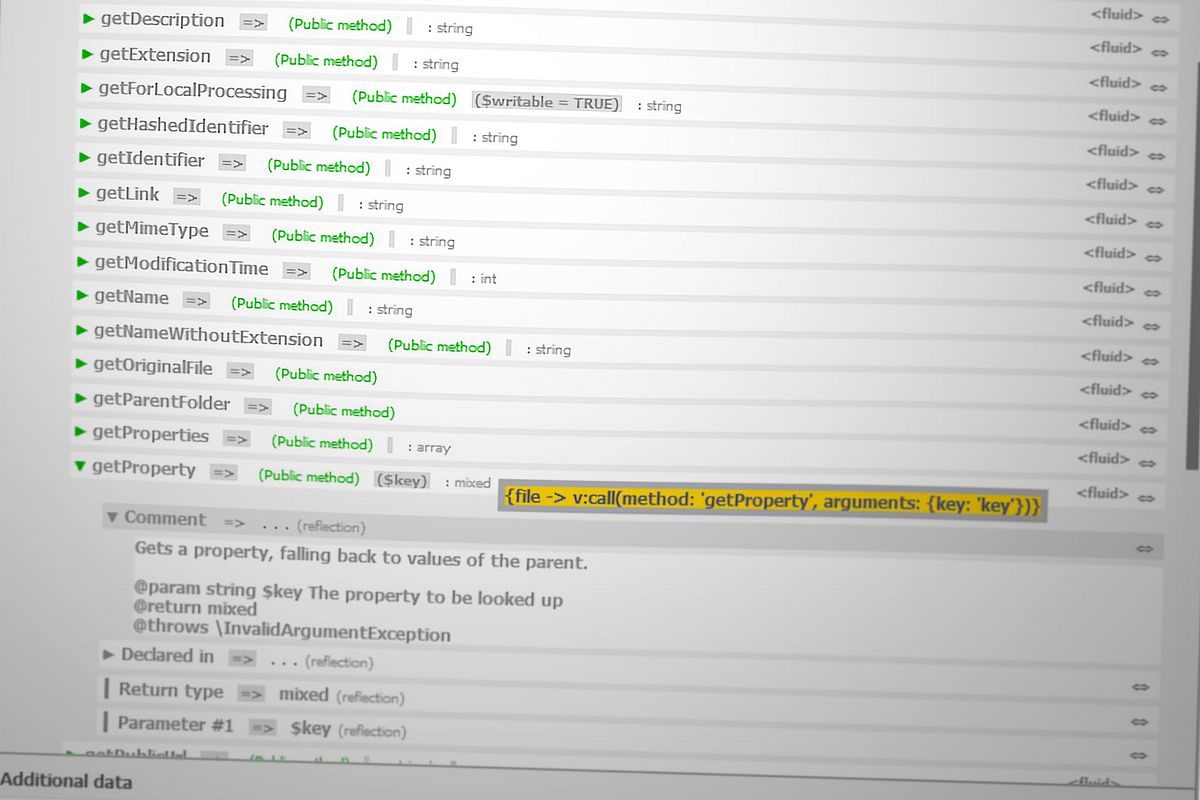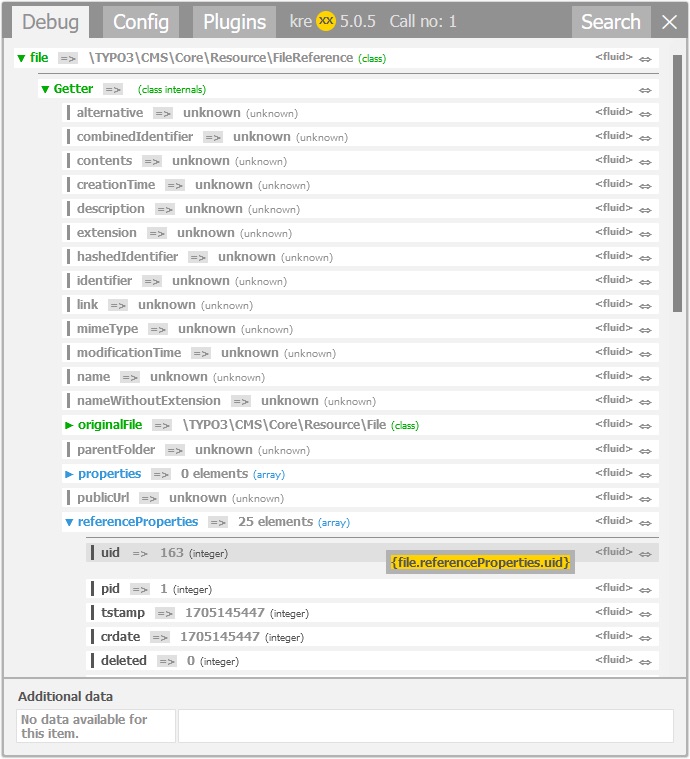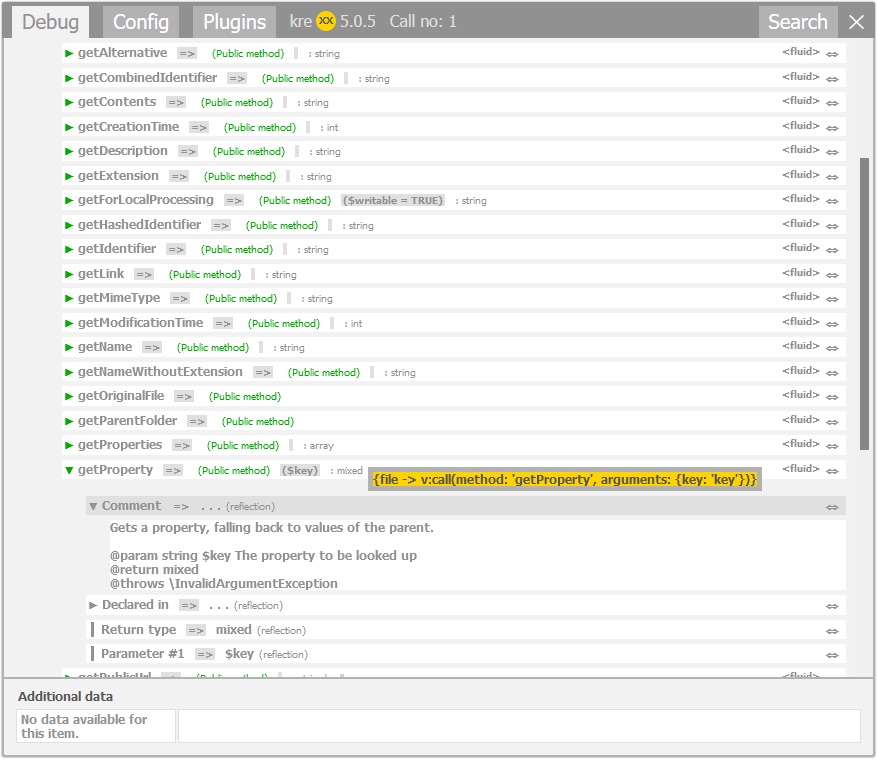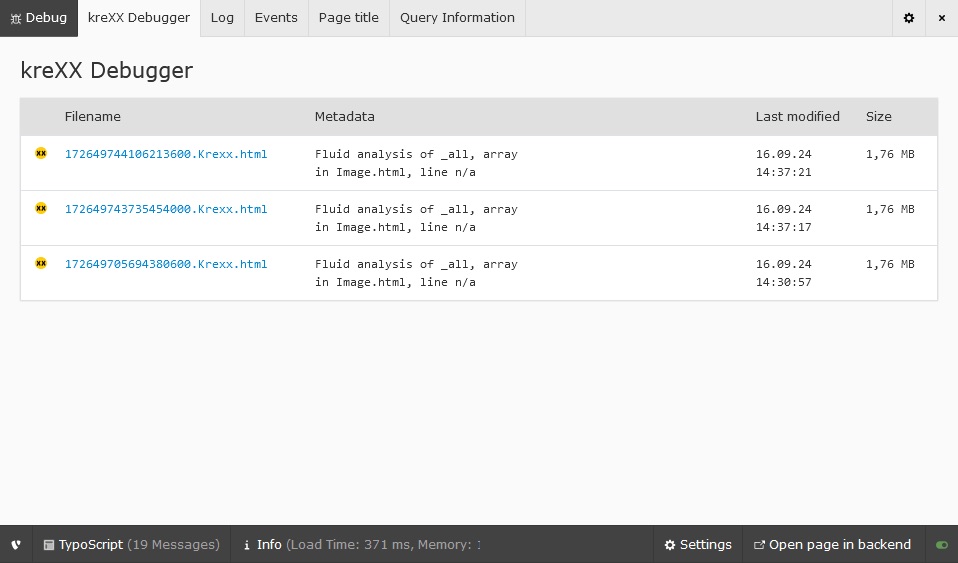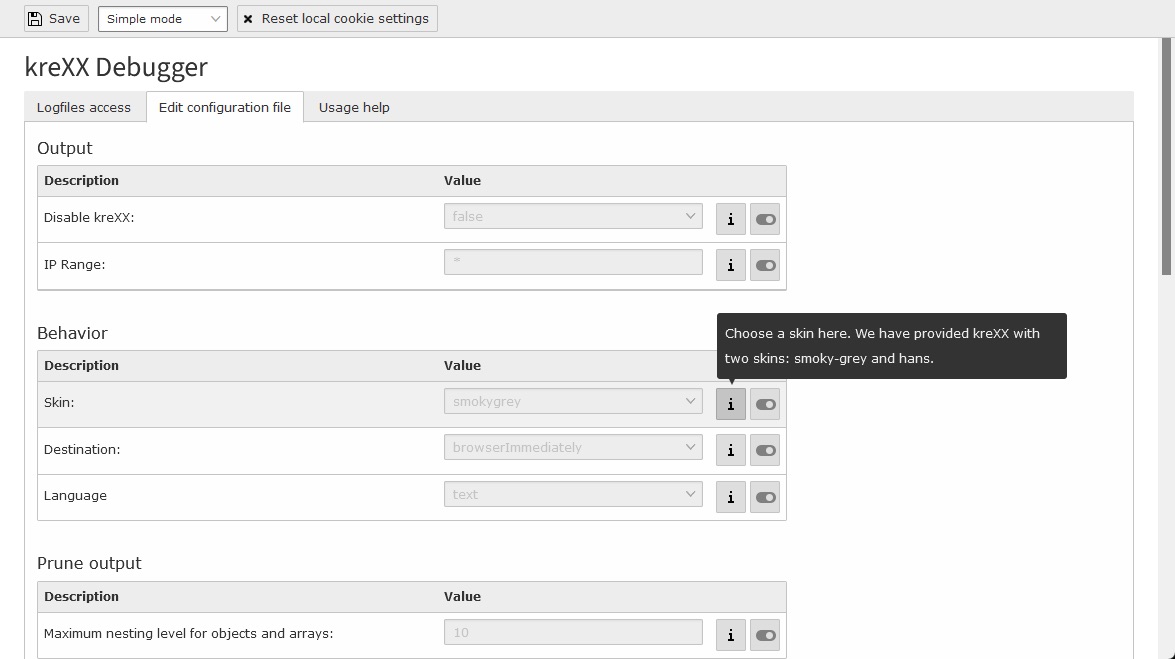TYPO3 uses Fluid as a templating engine to render the website frontend. The TYPO3 v13 LTS release will use Fluid v4. TYPO3 will provide the f:debug ViewHelper to assist integrators with this task. Modern templating engines like Fluid increasingly rely on objects, which traditionally use getter methods to supply templates with values. However, these methods may not be visible in the f:debug ViewHelper because it only displays class properties.
Getter Debugging
The main problem with f:debug is that it doesn’t resolve getter methods for objects; it simply looks at class properties and displays them. In contrast, the kreXX Debugger extension analyzes object methods. Rather than calling these methods directly, it determines their potential return values by inspecting the class structure and parsing the source code.

